Bush has issued yet another signing statement that we as a people cannot ignore. This one should immediately force the Congress to bring impeachment charges against Bush/Cheney. Bush has announced his right or his intention to ignore four components of the National Defense Authorization Act of 2008. The four points of law that Bush is stating that he may disregard at his pleasure include the portions of the Act outlined in the following sections:
Subtitle D--Accountability in Contracting
Sec. 841 Commission on Wartime Contracting in Iraq and Afghanistan.
Sec. 846. Protection for contractor employees from reprisal for disclosure of certain information.
Sec. 1079. Communications with the Committees on Armed Services of the Senate and the House of Representatives.
Sec. 1222. Limitation on availability of funds for certain purposes relating to Iraq.
Whether this is a consitutional action for the president to take is fairly clear - IT IS NOT.
The following commentary on the impact of the signing statement is from the Boston Globe, "Bush Asserts Authority to Bypass Defense Act," (January 30, 2008).
"Some legal specialists disagreed with the administration's legal theory.
'Congress clearly has the authority to enact this limitation of the expenditure of funds for permanent bases in Iraq,' said Dawn Johnsen, an Indiana University law professor who was the head of the Justice Department's Office of Legal Counsel during the Clinton administration.
Bush's frequent use of signing statements to advance aggressive theories of executive power has been a hallmark of his presidency. Previous presidents occasionally used the device, but Bush has challenged more sections of bills than all his predecessors combined - among them, a ban on torture.
Bush signing statements prompted widespread controversy when his record came to light in 2006. After Democrats took over Congress in 2007, Bush initially issued fewer and less aggressive signing statements. But his new statement returned to the previous approach, observers said.
The signing statement also targeted a provision in the defense bill that strengthens protections for whistle-blowers working for companies that hold government contracts (Section 846). The new law expands employees' ability to disclose wrongdoing without being fired, and it gives greater responsibility to federal inspectors general to investigate complaints of retaliation.
In addition, Bush targeted a section that requires intelligence agencies to turn over 'any existing intelligence assessment, report, estimate or legal opinion' requested by the leaders of the House and Senate armed services committees within 45 days(Section 1079). If the president wants to assert executive privilege to deny the request, the law says, White House counsel must do so in writing.
Finally, Bush's signing statement raised constitutional questions about a section of the bill that established an independent, bipartisan 'Commission on Wartime Contracting in Iraq and Afghanistan' to investigate allegations of waste, mismanagement, and excessive force by contractors (Section 841).
The law requires the Pentagon to provide information to the panel 'expeditiously' upon its request.
The signing statement did not make clear whether Bush is objecting to the creation of the commission because some of its members will be appointed by Congress or whether he is reserving the right to turn down its requests for information - or both.
Phillip Cooper, a political science professor at Portland State University, noted that Bush's statement does not clearly spell out the basis for any of his challenges. Cooper, who has been a pioneer in studying signing statements, said the vague language itself is a problem.
'It is very hard for Congress or the American people to figure out what is supposed to happen and what the implications of this are,' Cooper said.
The White House did not respond to a Globe request to explain the objections in greater detail. But the Bush administration has repeatedly insisted that its use of signing statements has been both lawful and appropriate.
Still, the signing statement makes one thing clear, according to David Barron, a Harvard law professor. The White House, he said, is pressing forward with its effort to establish that the commander in chief can defy laws limiting his options in national security matters. The administration made similar assertions in recent disputes over warrantless wiretapping and interrogation methods, he said.
'What this shows is that they're continuing to assert the same extremely aggressive conception of the president's unilateral power to determine how and when US force will be used abroad, and that's a dramatic departure from the American constitutional tradition,' said Barron, who was a Justice Department official in the 1990s.
In 2006, the American Bar Association condemned signing statements as 'contrary to the rule of law and our constitutional separation of powers.'"
Here's a link to the NYTimes Op-Ed piece, The Fine Print, (January 30, 2008)
United for Peace & Justice call for Impeachment over Signing Statement (January 31, 2008)
Wednesday, January 30, 2008
Subscribe to:
Post Comments (Atom)

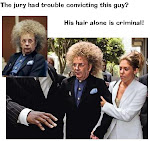











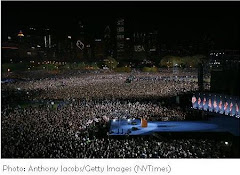
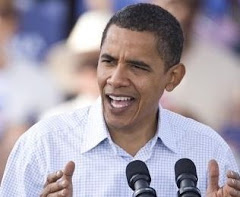


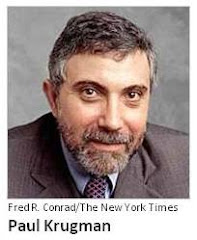









































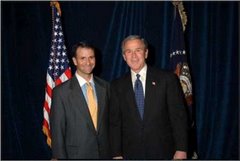





No comments:
Post a Comment